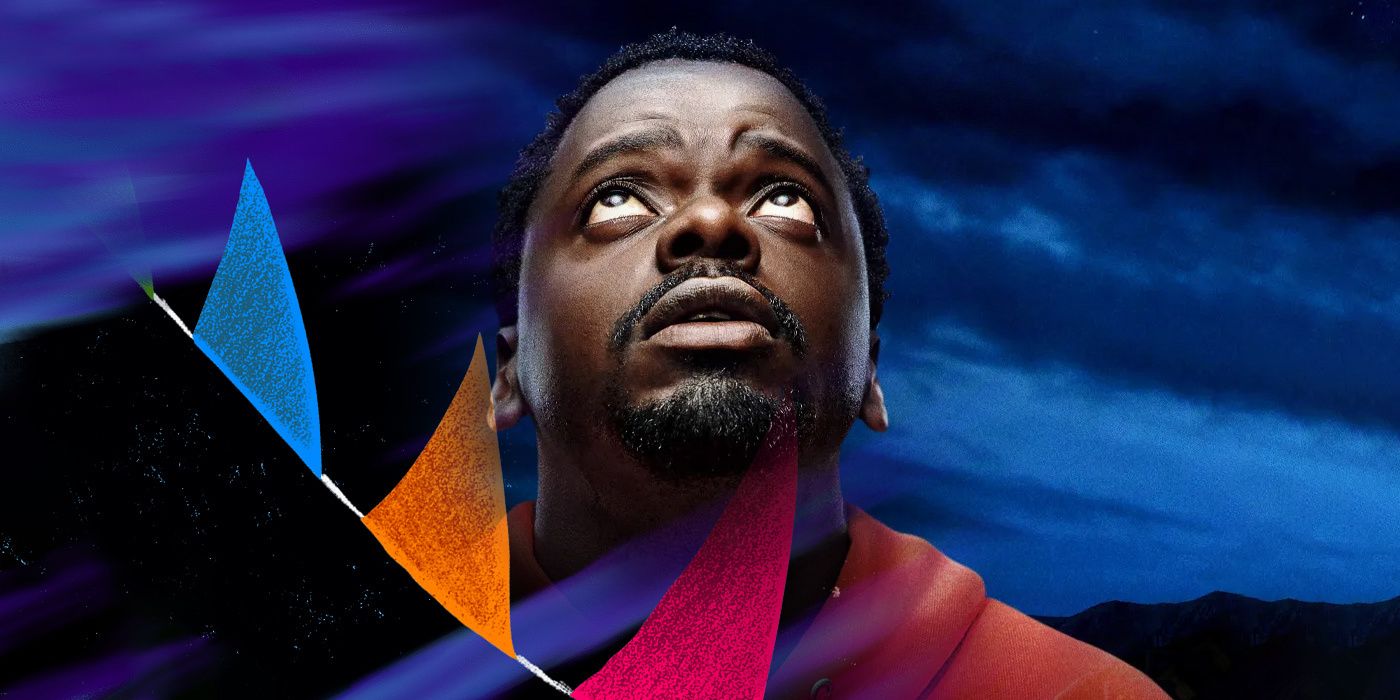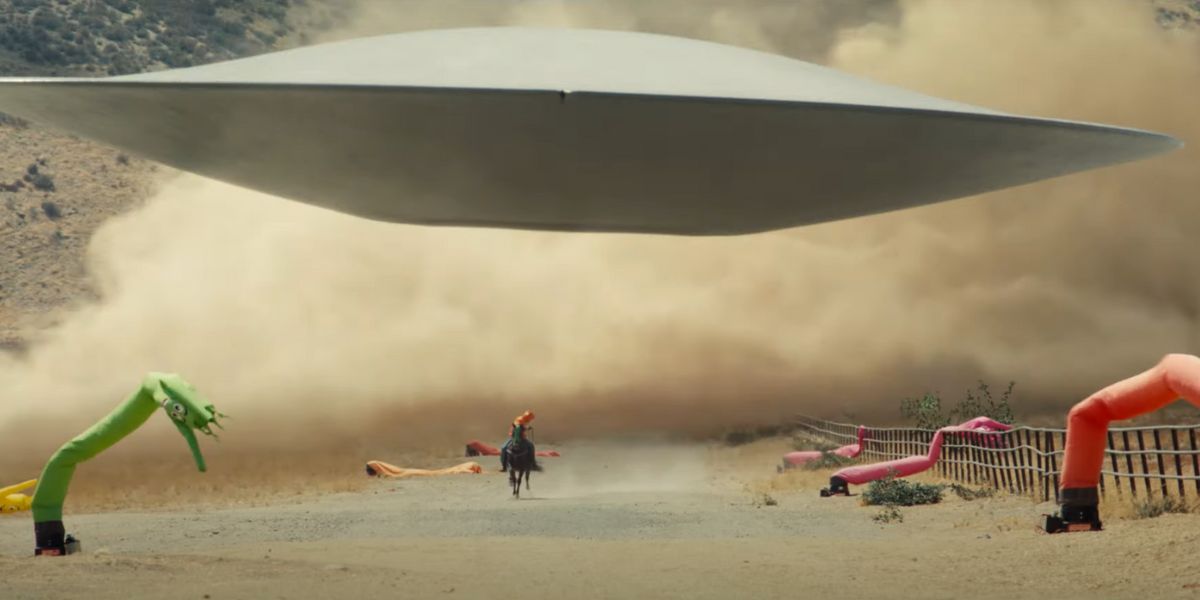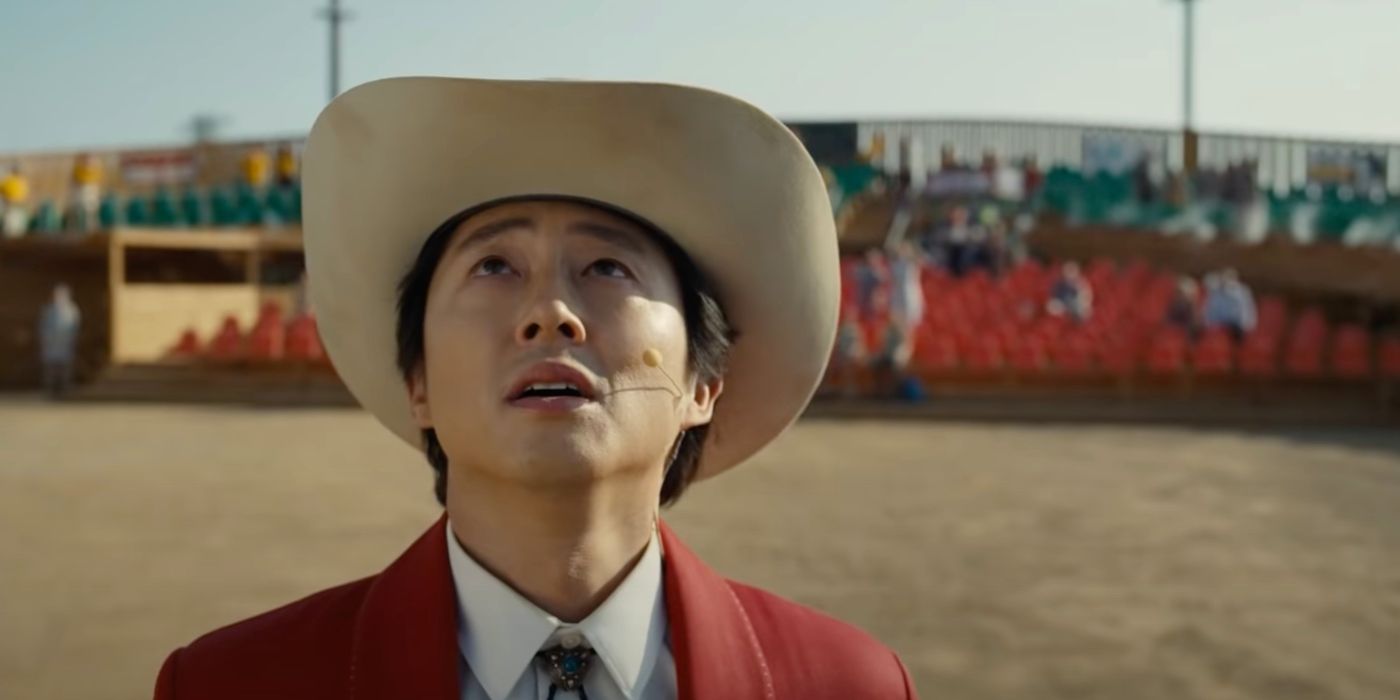Editor's note: The below article contains spoilers for Nope.During Barack Obama’s presidency, Jordan Peele was inspired by the illusion of equality in the United States and created the essential film, Get Out. This was Peele’s passionate response to a complacent country obsessed with revisionist history that acted as if it was living in a post-racial society. In his sophomore film, Peele swung hard with 2019’s Us. A film that asks all audiences to reflect on the paradox of living in a capitalist system and how circumstances, not hard work, dictate opportunities. Because of these demanding commentaries and the state of cinema during the pandemic, Peele decided he wanted to make a movie for all audiences to enjoy - with a twist.
Well, he did it. Peele’s Nope is 2022’s summer blockbuster and more. The film is a visual masterpiece with a disturbing soundscape that makes the movie quite an immersive spectacle. This cinematic treasure has enough film iconography to be Peele’s personal love letter to Hollywood and cinephiles alike. However, behind the balloons, confetti, and spectacle of Nope, there is a subversive subtext that will challenge audiences: the fallacy of the American dream and the symptoms of its lies.
The problematic ethos of the United States began as Manifest Destiny during westward expansion/invasion, which focused on exploiting the west for its land and resources. This movement transformed into what modern traditionalists call the American dream. The evolution of racial, ethnic, and economic European superiority evolved into nationalistic rhetoric about equal opportunity for all. Of course, the hypocrisies of the American ethos are known by those who it most actively disenfranchises, marginalizes, and excludes. The truth is that the American dream is manipulative: it tempts you to look up at the opportunities of the world, exploit them, make a spectacle, and continue a cycle of oppression for the sake of material growth. Artists like Peele have become vital to illustrating these American hypocrisies that most negatively impact underrepresented and disadvantaged communities.
The allure and therefore the fallacy of the American dream is manifested by Nope’s many spectacles and is Peele’s stroke of genius. Accepting the American dream as authentic and exploiting others as spectacles are sure to create victims and a cycle of oppression that reveals the American nightmare. Some key victims of this nightmare are: the black jockey in the first motion picture "The Horse in Motion," who was exploited by the industry and lost to history (representing the Haywood’s family history); Ricky "Jupe'' Park (Steven Yeun) who is exploited and tokenized because of his “otherness” as a young Asian American in Hollywood; the many chimpanzees who play Gordy on Gordy’s Home who have been ripped from their actual homes to star in sitcoms, and most importantly the sentient being (Jean Jacket) in the sky.
Jean Jacket is Peele’s most significant spectacle. It's a literal sentient being who is a sky animal shaped as an amalgamation of a UFO (UAP - unidentified aerial phenomenon), cowboy hat, and jellyfish. Metaphorically, it represents an illusion of opportunity that, if exploited, will continue a cycle of oppression. Key figures in Nope like Jupe, OJ (Daniel Kaluuya), Emerald Haywood (Keke Palmer), and Antlers Holst (Michael Wincott), among others, all look at Jean Jacket as a spectacle to be exploited: a floating opportunity for wealth and notoriety. Jean Jacket represents the temptation of the American economic system. However, the system isn’t kind to anyone, especially disenfranchised groups from disadvantaged backgrounds. An alluring and manipulative trap, the American dream symbolized by Jean Jacket is camouflaged in the clouds as an opportunity; but, if you observe it long enough, it can suck you in and spit out what it chooses.
Before unpacking Jupe, OJ, and Em’s relationship to spectacle, the film asks audiences to recognize the importance of Holst the cinematographer. This once-famous DP now works on horse commercials and sits at home searching for the impossible shot among B-roll. We watch Holst meticulously go through his footage of animals in their habitats, hoping to capture the disturbing moment a predator kills its prey - a distressing yet poignant representation of the exploitation economy and spectacle culture Holst is accustomed to. When Holst captures a photo of Jean Jacket, arguably the most important picture in human history, he wants more. He climbs a mountain side for better lighting and sacrifices himself for his final shot of spectacle that he’ll never see. Peele’s juxtaposition of the seemingly helpful Holst to the tragic Jupe or the struggling OJ and Em is important to understand the spectrum of exploitation. Holst is someone who already has tools of the oppressive system; he is the white man behind the camera who chooses to find and create spectacles. At the end of his life, Holst’s ego and desire to be part of a spectacle, not just witness one, risks the lives of OJ, Em, and others.
The infectious American dream can indoctrinate anyone to be part of its oppressive cycle, and where people like Holst had opportunities to look away, others like Jupe, OJ, and Em weren’t as fortunate. Nope first focuses on Jupe as a young child actor to illustrate this inequitable dilemma. His tragic upbringing as a child star tokenized by white Hollywood in movies like Kid Sheriff represents how Jupe was exploited as a spectacle (see what Hollywood did to Ke Huy Quan). His trauma was someone else’s success story. As Jupe was exploited and his fame grew, so did his opportunities. During the tragic incident on Gordy’s Home, Jupe survives not because of connection with the chimpanzee, but because of his decision to stare at the golden opportunity covered in blood: the shoe of his mangled co-star. Once a victim, Jupe now exploits his tragic experiences and becomes a cog in the larger system by living his adult life as owner of the western amusement park Jupiter’s Claim. It’s possible this park is a satire on the way Asian Americans were exploited during the gold rush and were removed from American society after the Chinese-Exclusion Act, an eerily similar way people of color are exploited by Hollywood. Ultimately, Jupe and Jupiter’s Claims’ tragic history becomes part of propagating the fallacy of the American dream and helps continue the cycle of oppressive behavior by profiting off of the Gordy’s Home incident, as well as exploiting Jean Jacket until his final moments.
When watching Nope in a vacuum, it may seem like the film's protagonists are the Haywoods, specifically OJ and Em. These two young black Americans are trying to keep their family business, Haywood’s Hollywood Horses, afloat after the death of their father. This family’s legacy starts with their great-great-great-grandfather as the black jockey who should’ve been immortalized as the first movie star. The family has been chewed up and spit out by Hollywood. But what Peele is unpacking with his allegory that examines the infectious American dream, a lot like his thesis in Us, is that no one is safe from becoming a part of a larger American system of oppression. This collective reality highlights the paradox of the American identity.
OJ and Em want the “Oprah” shot, the impossible picture of Jean Jacket that will recover their family legacy and create their own. Peele writes Em authentically as a young Black queer woman who is eager to prove herself as she’s been underappreciated and undervalued in her life. However, the end of Jean Jacket is at the hands of the Haywoods, who unlike Holst, have fewer opportunities to survive, leaving the Haywoods to be part of the exploitative cycle.
Most notably, Angel Torres’s (Brandon Perea) character arc best signifies how the Haywoods could be indoctrinated by the system. Angel, on the surface, is comic-relief for the audience and tech support for the Haywoods. But by the end of the film, Angel is a nameless Latino man absent from the spotlight and coverage of the Haywoods and their photo of Jean Jacket. His arc begins with his labor and time being exploited at Fry’s Electronics and ends with him isolated in a desert, covered in a tent, wrapped in barbed wire. He is someone who may inevitably be forgotten in history, much like the Haywoods’ great-great-great-grandfather. Ultimately, the Haywoods have the blood-stained keys, but Peele doesn’t nihilistically leave audiences to believe they'll continue the toxic status quo, as it's possible the Haywoods are fundamental to help reform the ethos of the United States by exposing the fallacy of the American dream.
Hollywood is a sort-of microcosm of the American dream that Peele both immortalizes and satirizes. This is at his and the audience's expense, as we are all participants in its terror. Nope is masterfully crafted as a summer blockbuster, a spectacle, which is what his films most deeply critique. The self-awareness from Peele doesn’t stop there, as the filmmaker has become a symbol of tribute to popular culture and master of satirizing the country’s obsession with spectacle. The essence of Nope captures the complexities of the paradoxical American ethos and is an examination into the ever-growing canvas and psyche of Peele.


-2.jpeg)

